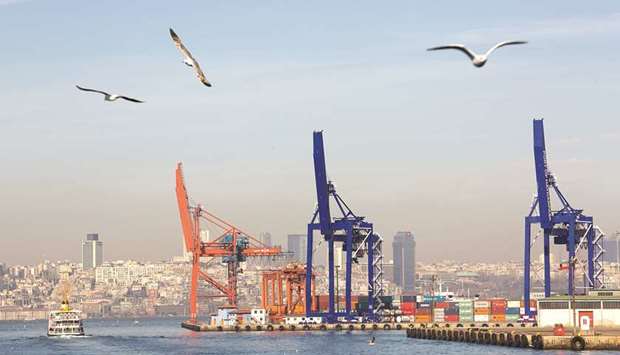Among the core opportunities seen for the Islamic finance industry in the near future, there remains one segment that repeatedly appears in studies and forecasts: Islamic trade finance.
A new analysis, the “State of the Global Islamic Economy Report 2018/19,” the latest edition of the annual working paper on the Islamic economy produced by Thomson Reuters and US-based research firm DinarStandard, lists Islamic trade finance once more as one of the “under-addressed opportunities” in the industry. Given that global trade is a $12.3tn-industry, the report suggests that there was a “huge potential” for a variety of trade financing options which go beyond currently used Islamic trade finance structures mainly based on murabaha (sales contract), ijarah (leasing agreement), diminishing musharakah (joint ownership) and wakalah (agency contract).
As of last year, Islamic trade finance had an estimated global volume of around $186bn, according to figures released by the International Islamic Trade Finance Corp, an industry body within the Islamic Development Bank Group. However, total trade volume within the Organisation of Islamic Cooperation (OIC) and its 57 members alone has been put at $700bn as per 2017, with $1.8tn in imports into and across the OIC, highlighting “substantial rooms for growth” and opportunities for Islamic finance institutions.
There have been developments in the industry to agree on aligned trade finance standards and create more products to increase the range of tools and instruments which regulate how cash, credit, investments and other assets can be utilised for trade. This includes Shariah-compliant structures for letters of credit, trust receipts and bills, shipping guarantees, working capital financing and export credit financing.
Forex transactions may be taken on by several Islamic banks on the spot or through contracts or currency arbitrage while sticking to the principle of profit-loss sharing.
However, the Thomson Reuters report remarks that there were still limited structures used in Islamic trade finance products and that the industry has an overreliance on Shariah-compliant trade contracts. There was also a lack of standard documentation for Islamic trade finance deals, the report says.
To tap the opportunities in Islamic trade finance to a much larger extent, the researchers suggest that governments, multinationals and public entities in the OIC member states get involved and jointly develop documentation standards related to Islamic trade finance (which could involve digital technologies such as blockchain to reduce costs of and accelerate Shariah-compliant trade deals), all based on a clear understanding of the market opportunity and participant needs.
Islamic financial institutions and banks should collaborate with large multinationals to expand the usage and marketing of Islamic trade finance products, and central banks should get involved to enhance the range of Islamic trade finance products and back cross-border deals with the overall goal of increasing trade and building up trade capabilities between OIC member countries and beyond, as well as make Islamic trade finance tools competitive to conventional instruments.
The fact that Islamic finance traditionally has lacked in technology and automation is in particular focus. Experts suggest a much broader facilitation of smart contracts based on blockchain.
“Trade finance is often the area that offers an obvious benefit from smart contracts simply because it’s currently a fairly slow paper-based process. It often has multiple intermediaries and quite a big time lag between events,” says Fadi Yazbeck, product manager at Swiss banking software company Temenos, which has developed a special Islamic trade finance solution called ”Temenos IslamicSuite.”
Smart contracts would be capable of automating the entire contractual process for Islamic institutions and corporations and integrating complex administrative and legal aspects, while they – by facilitating blockchain technology – were also easy to verify, unalterable and secure and allow for visibility of trade deals and easy tracking of transactions, Yazbeck suggests.

Cranes and shipping containers stand at the Port of Haydarpasa, also known as Haidar Pasha, on the Bosporus waterway, in Istanbul (file). Total trade volume within the OIC and its 57 members alone has been put at $700bn as per 2017, with $1.8tn in imports into and across the OIC, highlighting u201csubstantial rooms for growthu201d and opportunities for Islamic finance institutions.
